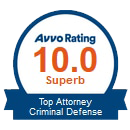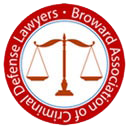Hassett & Associates, P.A.
Call 24/7 - (954) 791-3939 | Hablamos Español
Call 24/7 – (954) 791-3939
Creating, distributing, or possessing child pornography can lead to severe consequences if you are convicted in Florida. You could face a sentence of years in prison as a sexual predator, heavy fines, and lifelong sex offender registration. The criminal justice system treats crimes involving child pornography seriously because of the harm children suffer. Federal law enforcement officers and local police departments work together to identify those who create, distribute, or possess child pornography and charge them with serious criminal offenses. Law enforcement officers frequently target people who download and possess pornographic images instead of the creators because of the difficulty they have with tracking down the source.
Most people are repulsed by pornographic images of children. People who are called to serve on juries in trials against those who are charged with child pornography crimes often start with an automatic assumption of the defendant’s guilt because of the nature of the charges. If you are facing child pornography charges, it’s critical to retain an experienced Fort Lauderdale criminal defense lawyer to aggressively defend against your charges. Fort Lauderdale child pornography lawyer Kenneth P. Hassett has more than 30 years of experience aggressively defending people charged with all types of crimes, including serious sex crimes. He is prepared to build the strongest possible defense against the allegations you are facing and can explain your legal options. Here’s some information about child pornography charges in Florida you should understand.
Child pornography offenses are investigated and prosecuted in both state and federal court. these crimes are categorized based on their severity. Federal and state law enforcement agencies have vast resources that they use to dig through the lives of people suspected of engaging in child pornography offenses to find evidence to support charges.
In most cases, law enforcement officers and prosecutors strive to charge people with the most severe offenses for which they can secure probable cause findings when they are dealing with child pornography offenses. To satisfy the requirement of probable cause, the police only need to show that evidence of a crime will likely be found in a place to be searched or that the target may have committed a crime to support an arrest. This is a much lower burden than what is required of prosecutors to secure convictions in court. Prosecutors must prove a defendant’s guilt beyond a reasonable doubt before they can be found guilty.
After the police charge someone with a child pornography offense, the case will then be handed off to the prosecuting attorneys. The prosecutors will continue the investigation to try to build the strongest possible case for trial. Prosecutors bring charges that they believe they can prove at trial. They often stack charges against defendants facing child pornography charges to up the stakes and make it difficult for the defendants to successfully defend against every charge.
Charge stacking often means that someone accused of child pornography will face decades-long sentences if convicted. Prosecutors stack charges to try to secure the harshest possible penalties and convince defendants to enter guilty pleas in exchange for capped sentences. In Florida, you can be charged with a child pornography crime for each image you possess. When you retain an experienced Fort Lauderdale child pornography lawyer at Hassett & Associates, you can level the playing field as your attorney fights for your rights.
Child pornography is defined in § 827.071(1)(b), Fla. Stat. (2023) as including any image of a minor engaged in a sexual act or images that have been altered, modified, created, or adapted to portray an identifiable person younger than 18 engaged in sexual activity. Pornography includes any type of media, including digital images, videos, photographs, and others. If you possess a single image of child pornography, the offense is classified as a third-degree felony under Florida law. This offense carries a maximum prison sentence of five years and a $5,000 fine. The court can also impose a probationary sentence with terms that include staying away from minors without supervision, not accessing the internet, and mandatory sex offender treatment. You might also be required to register as a sex offender. If you possessed more than one image, you could be charged for each one. The sentencing judge could also order your sentences for each charge to run consecutively.
Under § 775.0847, Fla. Stat. (2023), possession of child pornography charges can also be reclassified to the next-higher felony in certain situations. You can be charged with a second-degree felony child porn possession offense when you possess 10 or more images and one or more of the images contain any of the following:
If you are convicted of second-degree felony possession of child pornography, the maximum prison sentence is 10 years with a $10,000 fine. You could also be ordered to complete a probationary sentence with mandatory sex offender classes, avoidance of the internet, and no unsupervised contact with children younger than age 18.
You could face federal charges for possessing child pornography. The federal courts will have jurisdiction if they can prove that you used the internet to download and possess child pornography, received them by mail, or used a shipping company that engages in interstate commerce. Federal charges carry serious penalties and are frequently more severe than state charges. If you are federally convicted of possessing child porn, you could be sentenced to a federal prison sentence of 15 years.
It is legal to possess pornography that doesn’t depict children in Florida. However, you do not have the right to show legal pornographic images, pictures, or movies to children under the age of 18. Under § 847.013, Fla. Stat. (2023), illegally exposing a minor to pornography can result in first-degree misdemeanor charges. A conviction for exposing a minor to pornography could result in a maximum sentence of one year in jail and a $1,000 fine. A conviction for this offense could result in a requirement to register as a sex offender. If you are later convicted of additional offenses, the prosecutor can enhance the charge to a third-degree felony carrying a maximum prison sentence of five years and a $5,000 fine.
Under § 827.071, Fla. Stat. (2023), the promotion of child pornography includes distributing it. This crime is serious under state law, and a conviction is a second-degree felony. If you are convicted of this offense, you will face a maximum prison sentence of 15 years and a $10,000 fine. The prosecutor will have the burden of proving that you knowingly dispensed, distributed, produced, or advertised a visual depiction of a minor engaged in sexual activity. You could also face federal charges for distributing child pornography carrying even harsher penalties if the act involved interstate commerce.
While the distribution of child pornography is a serious offense, modern technology used to identify and arrest perpetrators makes apprehension difficult. Because of the resources and effort involved to catch people distributing child pornography, people who are caught often face the maximum sentence when they are convicted.
The manufacture of child pornography involves creating images that portray a child involved in sexual conduct. This offense also includes individuals who ask someone else to participate in creating child pornography.
This offense is a second-degree felony crime in Florida. A conviction for a single charge of manufacturing child pornography in Florida could result in a maximum prison sentence of 15 years and a $10,000 fine. The court could also impose a probationary sentence of 15 years to follow the prison sentence with restrictive terms, including having no access to the internet, children without supervision, and mandatory sex offender classes.
If a person is charged federally, the minimum mandatory sentence is five to 20 years for certain offenses related to child pornography. However, these minimum penalties are enhanced when child pornography offenses involve the sexual exploitation of minors, including in the creation of child pornography. This federal crime carries a minimum mandatory sentence of 15 to 30 years.
Under the Florida Rules of Criminal Procedure, judges must consider several things when they determine the sentence to hand down to people who have been convicted of crimes. Criminal offenses have maximum sentences set according to their level of severity as follows:
To determine whether to sentence someone to the maximum sentence for a crime at its level of severity, judges consider the following factors:
As previously mentioned, judges can order a defendant to serve consecutive sentences when they are convicted of multiple counts when they believe doing so is warranted. Conversely, a judge can also reduce the sentence of a defendant if they believe there are mitigating circumstances that would warrant a downward departure.
If you are convicted of a child pornography crime, having a strong defense lawyer t advocate for you at the sentencing hearing is critical. Your attorney can gather and present mitigating evidence on your behalf and craft a persuasive argument for why the judge should give a reduced sentence to you under the circumstances.
Having a strong defense attorney from the start of your case might also help you successfully defend against your charges so that you won’t need to worry about what might happen to you at sentencing at all.
It is fairly common for people who are charged with child pornography crimes to also face other types of charges based on the evidence. Some of the other types of charges that might be filed in a case involving allegations of child pornography crimes include the following:
Minors younger than 16 are legally unable to consent to sexual activity under Florida law.
Child pornography convictions carry collateral consequences in other areas of people’s lives that extend long after they have served their sentences and completed all probationary requirements. If you are convicted of a crime related to child pornography, you will likely be required to register as a sex offender after you are released from prison. Registered sex offenders must comply with their registration requirements or risk facing additional felony charges, and their information is publicized on the sex offender registry website.
Prosecutors can also ask the court to order the defendant to be involuntarily committed to a sex offender treatment facility following prison if the court finds the individual is a sexual predator.
If you are a lawful permanent resident but not a U.S. citizen, you can anticipate losing your residence status and facing deportation once your sentence is over. Finally, you will likely be ordered to stay away from any place where children are likely to be present, have no unsupervised contact with minors younger than 18 (including your children), and wear a GPS ankle monitor so that your location can be tracked at all times. You could also be prohibited from living within a specified distance of a school, park, or daycare facility and be ordered not to seek employment in certain industries in which you might encounter children as a part of your job.
While child pornography charges are serious and potentially life-altering, that does not mean that you can’t defend against them. In Florida, all people have a right to an attorney and to present a strong defense. You have the right to a fair trial even when your charges are unpopular. The Fort Lauderdale child pornography lawyer at Hassett & Associates strongly believes that all people have a right to a vigorous defense against their charges and aggressively advocates for people accused of child pornography offenses to protect their rights and liberty interests.
The defenses that might be available will vary based on the nuances of your case. Your lawyer will carefully review the evidence in your case and use their legal knowledge and experience to build the strongest possible defense case on your behalf. Defenses that are successfully raised in one case might not fit the facts of another one, which makes it important for you to ensure the Fort Lauderdale criminal defense lawyer you hire has substantial trial experience.
Some of the potential defenses that might be available in a child pornography case include the following:
Some of these defenses might be raised in motions to seek the suppression of evidence. For example, if the search and seizure were unconstitutional, your attorney could file a motion to suppress all evidence that was subsequently gathered as a result of the illegal conduct of the police. If the court finds the police gathered the evidence against you in a way that violated your constitutional rights against unreasonable search and seizure, the prosecutor might have no recourse other than to dismiss your case.
In the case of a shared computer in your home that you shared with multiple family members, the police might interrogate the person they suspect of committing the offense and use coercive tactics to try to secure a confession. In that situation, your attorney might file a motion to suppress your statements so that they can’t be used against you at trial. If your statements are suppressed, the prosecutor might still pursue the charges against you but will have a substantially weakened case.
Your lawyer will discuss the potential defenses that might be available to you in your case and help you understand the strategy that will likely be the most effective.
At Hassett & Associates, we understand the stakes involved when people are accused of child pornography offenses and the pressure they contend with when facing these types of charges. Attorney Kenneth Hassett, Esq. has established a long track record of successfully defending his clients over more than 30 years and is prepared to aggressively defend you against your charges. Contact us today at (954) 791-3939 to schedule a confidential consultation and learn about the help we can provide.
Fill out this form to have your case reviewed by one of our attorneys.
Charges: Aggravated Stalking
County: Miami-Dade
Facts: Female client was alleged to have been stalking and threatening the other woman in a love triangle
Results: Case Dismissed
Charges: Prostitution
County: Miami-Dade
Facts: Alleged Payment for Sexual Contact
Results: Case Dismissed, Record Expunged
Charges: Sexual Battery
County: Miami-Dade
Facts: Alleged Unconsented Touching of a Sexual Nature, Resulting in No Injury
Results: Case Dismissed
Charges: Solicitation of Prostitution
County: Miami-Dade
Facts: Alleged Solicitation of Prostitution of an Undercover Police Officer
Results: Case Dismissed, Record Expunged
Charges: Solicitation of Prostitution
County: Miami-Dade
Facts: Client allegedly offered money for oral sex
Results: Case Dismissed, Record Expunged
Charges: Solicitation of Prostitution
County: Broward
Facts: Client allegedly offered money to an undercover police officer for sex
Results: Case Dismissed
Kenneth P. Hassett, Esq. Awards & Ratings



